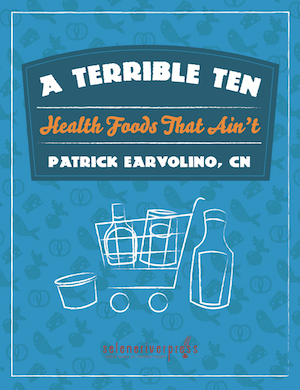Author unknown
Summary: A biographical sketch of the famous first chief of the U.S. Food and Drug Administration (known at the time as the U.S. Bureau of Chemistry). Dr. Wiley, a product of the populist age, was a champion of consumer safety when it came to the American food supply and was often referred to as the “Father of the Pure Food Law” of 1906. Read about Dr. Wiley’s ascension to power and his much-publicized fall as he fought in vain to keep synthetic preservatives and additives out of the national diet. If Dr. Wiley had had his way, all of America’s food would now be organic. (See also Dr. Wiley’s monumental book History of a Crime Against the Food Law in these archives.) Original source and date of publication unknown.
 Get self-health education, nutrition resources, and a FREE copy of A Terrible Ten: Health Foods That Ain't ebook.
Get self-health education, nutrition resources, and a FREE copy of A Terrible Ten: Health Foods That Ain't ebook.
